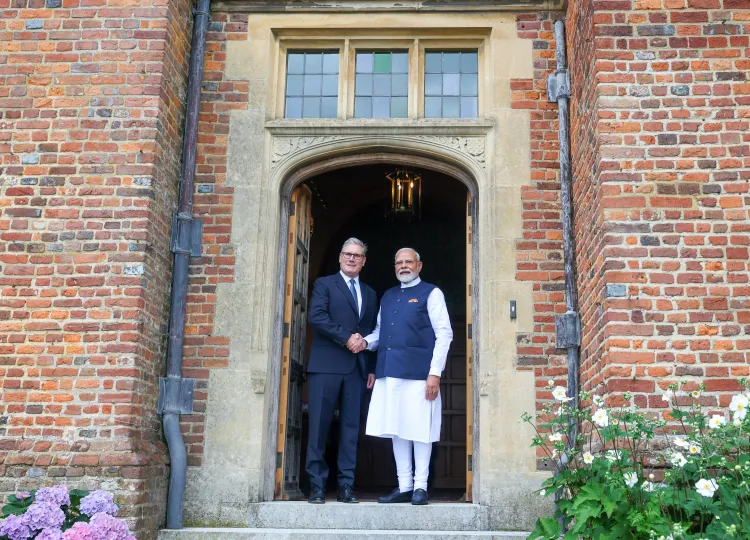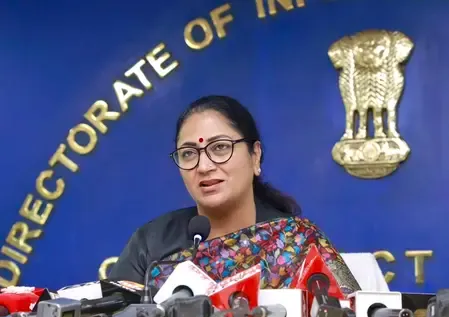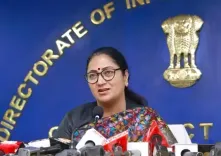Is the India-UK FTA a Turning Point for Economic Relations?

Synopsis
Key Takeaways
- The India-UK FTA is a significant milestone in economic relations.
- It offers preferential access for Indian farmers to the UK market.
- Zero duty on processed foods will benefit rural exporters.
- Indian fishermen gain access to a $5.4 billion market.
- Employment opportunities are expected to rise in various sectors.
New Delhi, July 24 (NationPress) Industry experts have termed the recent signing of the India-UK Free Trade Agreement (FTA) a significant milestone in bilateral economic relations. Prashant Ruia, Group Chief Executive of Essar, remarked that this is a crucial juncture for the economic ties between India and the UK.
“Under the astute leadership of Prime Minister Shri Narendra Modiji, the signing of the Free Trade Agreement (FTA) signifies the dawn of a new phase of strategic partnership between the two countries. By reducing tariffs, facilitating market access, and enhancing the flow of services and investments, this pivotal agreement releases enormous potential for both economies,” Ruia stressed.
The FTA provides preferential access for Indian farmers to the UK’s $37.5 billion agricultural market while ensuring that India safeguards its sensitive sectors such as dairy, vegetables, apples, cooking oils, and oats, as stated in an official release. Additionally, this deal significantly benefits rural India and exporters with a zero duty on processed foods, previously subjected to duties as high as 70%.
“The establishment of the India–UK Free Trade Agreement represents a transformational moment for Indian industry. We applaud both governments for reaching a consensus that is poised to stimulate bilateral trade, improve the competitiveness of Indian SMEs, and create new avenues for growth in manufacturing, services, and technology sectors. This agreement demonstrates the strategic depth that is expected to double bilateral trade to over $120 billion by 2030 with the UK,” stated Hemant Jain, President of PHDCCI.
Furthermore, the trade accord presents a substantial opportunity for Indian fishermen as the $5.4 billion UK market opens for marine exports, with UK import duties on marine products dropping to zero from previous rates of up to 20%. The free trade agreement also paves the way for enhanced job prospects and increased wages for India’s youth in the service sectors, including IT, finance, and consultancy.









